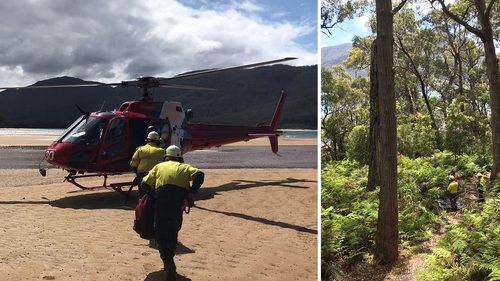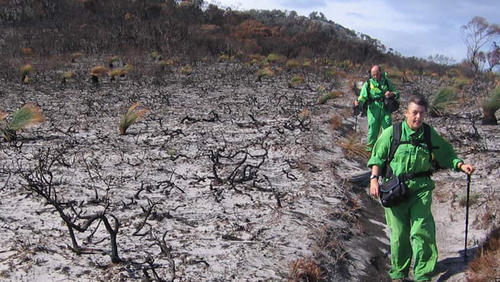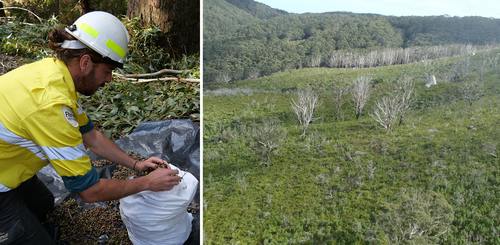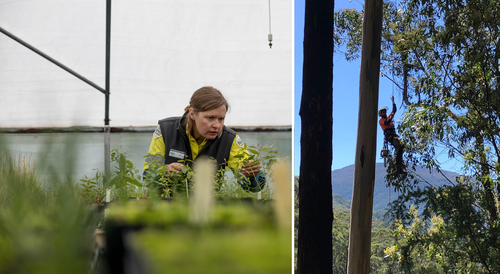For the last 100 years, Victoria’s beloved Wilson’s Promontory National Park has been in a non-stop battle with fire.
“If we had a big fire next year, we wouldn’t have enough time,” Brooke Joy, a restoration ecologist with Parks Victoria, tells 9news.com.au.
“Another fire could see these forests permanently disappear.”

Armed with a new round of Victorian government funding, and a helicopter-riding team of rangers, they’re developing a new technique that could insure against the worst outcomes of fire across the country.
The team is putting together a “BushBank” that they hope will help prevent ecological collapse and mitigate against future bushfires.
“The areas that we’re working in are the most remote parts of the National Park – they’re the furthest from the tracks, they’re the steepest slopes, they’re the thickest vegetation, and they have by far the most leeches,” Joy said.
After collecting the right mix of hard-to-find seeds, the project will simulate a bushfire in a few test sites that have already experienced ecological collapse.


Then, using the rare seeds they collect, they will reseed the test sites from the air, and restore the complex ecosystems that Australia is so famous for.
Read Related Also: Gwyneth Paltrow’s skiing instructor DENIES she was distracted by son Moses before 2016 crash
“We will be able to say – we need ‘X’ amount of this tree species, and we need to sow it at this density, to replicate what was there,” Joy said.
Asked about the likelihood of success in bringing the complex forest back to life, Joy said: “I’m very hopeful – it’s not overly complicated, but the main challenge is preparing in advance.”
Prevention is better than treatment
What makes this project so important – “awesome” in the words of ecologist Joy – is that thanks to $290,000 in funding from the state government, they can be proactive instead of simply reacting when the damage has been done.
“We’re lucky with this project that we can get in early and prepare for something that we think might happen in the future,” she said.

Their research hopes to build a “guidebook” that will instruct future generations on how to better recover from the effects of bushfires.
The principle has already worked at a simpler level in the Victorian Alps, using collected seeds to reseed mountain ash devastated in recent fires.
Joy’s team, along with a team of scientists from the University of Melbourne, are working with multiple species of eucalyptus trees, and hoping that eventually it can be scaled up.







